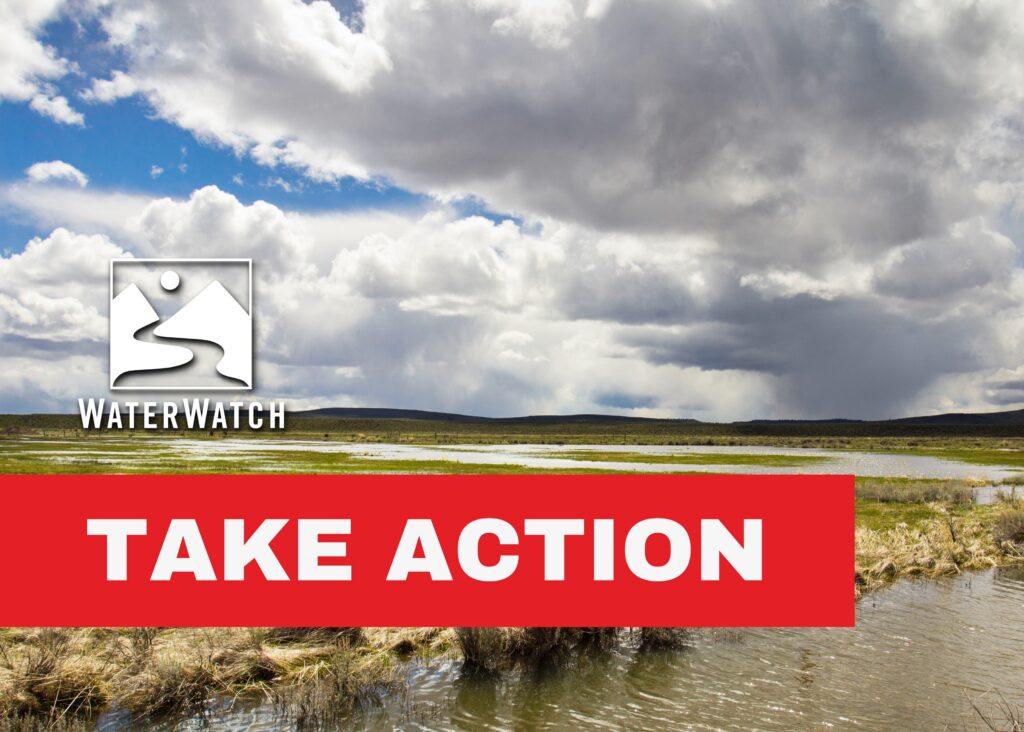A petition filed by Representative Mark Owens would undermine proposed rules to stabilize groundwater in the Harney Basin.
The Oregon Water Resources Department (OWRD) is moving to designate the Harney Basin in the high desert of southeast Oregon a “critical groundwater area” to ensure more sustainable groundwater levels.
Proposed rules developed over the course of a lengthy and exhaustive public process would, over time, allow for reductions in existing groundwater pumping in the Harney Basin, and continue the existing prohibition on new permits to address the region’s extreme overpumping of groundwater.
But despite years of work that went into developing the proposed rules to stop overpumping, Oregon Representative Mark Owens — an alfalfa irrigator in the Harney Basin — filed a counter rulemaking petition asking the Oregon Water Resources Commission to reject the state’s proposed rules and allow for significantly MORE groundwater pumping in the basin than what OWRD determined could continue while stabilizing groundwater levels. Owens’ petition would undercut critical action needed to protect groundwater.
As WaterWatch staff attorney Lisa Brown told Capital Press earlier this month, the proposal offers “substantially less protection” for groundwater and is “an 11th hour end run” around existing rules that already contain considerable concessions to the irrigators. A Technical Evaluation of the petition issued by OWRD on Tuesday confirms it would provide considerably less protection than the agency’s proposed rules, despite an apparent over-estimation of required pumping reductions.
Help us stop Representative Owens’ attempt to undermine the state’s proposed rules. Time, unfortunately, is short — the deadline to submit public comments is next Tuesday, Oct. 7th, by 5 p.m.
Note — Even if you previously submitted comments during the last comment period for this rulemaking, please do so again!
The threats to groundwater in the Harney Basin are clear. On Monday, Oregon Public Broadcasting reported groundwater pumped for irrigation tripled in the Harney Basin from 1991 to 2018. In one area of the basin groundwater levels have already declined by more than 100 feet, and continue to drop by as much as eight feet per year in a region of the state in which 97 percent of groundwater pumping is used forlarge-scale agricultural irrigation.
Copy and paste the talking points below and modify them as you see fit in an email to the attention of Kelly Meinz with OWRD. You must indicate in your remarks you’re commenting on BOTH the “Petition for Rulemaking — Division 512” and “Agency Proposed Rules — Division 512.”
Use this email address:
WRD_DL_rule-coordinator@water.oregon.gov
Talking points:
- I am commenting on both the “Petition for Rulemaking — Division 512” and the “Agency Proposed Rules — Division 512.”
- I do not support the Petition for Rulemaking filed by Representative Mark Owens. The petition will allow continued overpumping of groundwater, will not stabilize groundwater levels, and will not adequately protect groundwater in the Harney Basin. I urge the Oregon Water Resources Commission to deny Rep. Owens’ petition.
- I urge OWRD to first strengthen the groundwater protections in OWRD’s proposed rules to stabilize groundwater levels faster and better protect groundwater, and then adopt those rules.
- I urge OWRD to adopt rules that protect groundwater dependent ecosystems such as springs, wetlands, streams, lakes, and native vegetation from over-pumping of groundwater.
Share this alert with friends and family, and remember, submit your comments by 5 p.m. on Tuesday, Oct. 7th. Any comments that come after that deadline won’t be considered.
Thank you for your time, help, and ongoing support!
Malheur National Wildlife Refuge banner photo courtesy of Bonnie Moreland.


